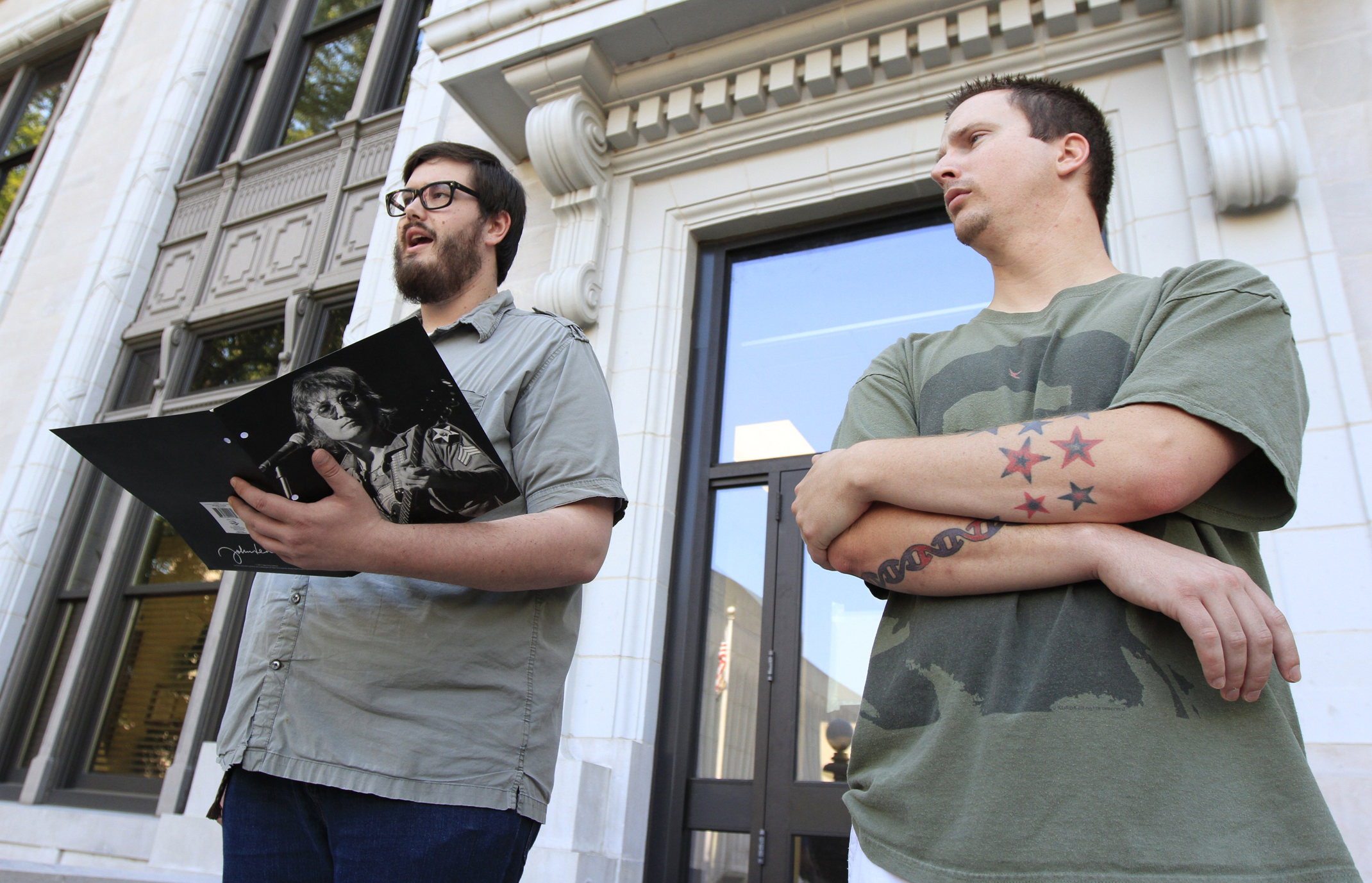Local attorneys expect the U.S. Supreme Court to give a final "amen" to prayers in public meetings after the high court agreed Monday to hear a New York case. Whether that will be an expression of assent or a pronounced ending for government prayer is yet to be seen.
Either way, attorneys Robin Flores and Steve Duggins say the outcome of the case, Town of Greece v. Galloway, will ultimately decide Hamilton County's own prayer lawsuit.
Flores is representing Thomas Coleman and Brandon Jones, who filed a federal suit in June 2012 to stop prayers before Hamilton County Commission meetings.
Coleman and Jones say the prayers, which are majority Christian, blur the line between church and state.
Duggins is defending the county in the suit, arguing that legislative prayer has been upheld by the nation's high court.
The Galloway case came from Greece, a town near Rochester, N.Y., and the circumstances are very similar to those in Hamilton County's case.
In the New York case, two residents sued the town board because it has been allowing a "chaplain of the month" to publicly pray before town meetings. The residents say the prayers violate the establishment clause of the First Amendment, which does not allow the government to establish a religion.
Greece officials say the town policy allows people of all faiths and atheists to give the opening prayer.
But in practice, a federal appeals court in New York said, most of these prayers included "uniquely Christian language."
Flores said Monday he plans to file a "friend of the court" brief in the Galloway case because of the legal similarities. In fact, he has cited the Galloway appellate case in some of his own arguments before the 6th Circuit Court of Appeals.
According to Flores, Galloway looks at what is called the "applied analysis" of legislative prayer instead of the "facial analysis."
That's legalese for saying the court is looking at whether the application of the law can make it unconstitutional even if the wording of the law seems OK.
Whatever the high court decides will be a "landmark case" for legislative prayer, Flores said.
"This is going to be a big case when it comes to legislative prayer, and I think it's going to consolidate [other appellate cases]," Flores said.
So far, legislative prayer cases have been handled in six federal appellate courts, not counting the 6th Circuit, which picked up the Hamilton County case in August 2012, after U.S. District Court Judge Harry S. Mattice ruled against Coleman and Jones.
Courts for the 4th, 2nd, 10th and 7th circuits have ruled against allowing prayers at government meetings, while the 11th and 9th circuit courts have ruled in favor.
Duggins said he has no plans to file in the Galloway case, but he will watch it.
"I'm glad the U.S. Supreme Court has granted it, because I believe Galloway is contrary to what I believe the Establishment Clause says," Duggins said. "I would expect the outcome of Galloway to have a huge impact on the Hamilton County case," Duggins said.
But despite the high court picking up the New York case, Hamilton County's case is still awaiting an opinion from the 6th Circuit, which heard arguments from Flores and Duggins in April.
Flores said if the 6th Circuit rules against his clients, he will seek to join the Galloway case in the U.S. Supreme Court.

